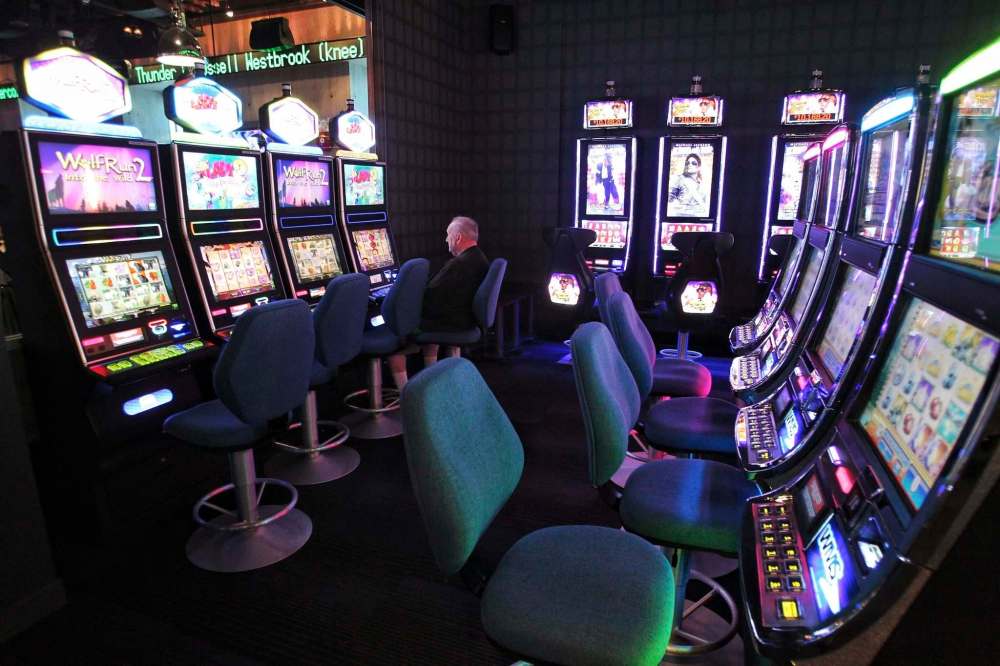Manitoba chiefs sue province for $888M
Suit alleges First Nations shut out of casino deal
Advertisement
Read this article for free:
or
Already have an account? Log in here »
To continue reading, please subscribe:
Monthly Digital Subscription
$19 $0 for the first 4 weeks*
- Enjoy unlimited reading on winnipegfreepress.com
- Read the E-Edition, our digital replica newspaper
- Access News Break, our award-winning app
- Play interactive puzzles
*No charge for 4 weeks then billed as $19 every four weeks (new subscribers and qualified returning subscribers only). Cancel anytime.
Read unlimited articles for free today:
or
Already have an account? Log in here »
Hey there, time traveller!
This article was published 18/10/2017 (2381 days ago), so information in it may no longer be current.
The Assembly of Manitoba Chiefs and Sand Hills Casino Resort are suing the Manitoba government and Manitoba Liquor and Lotteries, claiming they broke a promise to share the province’s gaming wealth with First Nations.
The 41-page statement of claim filed in Manitoba Court of Queen’s Bench Tuesday alleges the province reneged on a deal with First Nations to have five casinos running in Manitoba before any expansion on non-First Nations casinos.
The claim says they were shut out of the Winnipeg market while the province let True North Sports and Entertainment’s Shark Club get in on the action and licensed 500 more VLTs for non-First Nation gaming locations in Winnipeg.

“We engaged with the Government of Manitoba starting 20 years ago in a regime for First Nations to get licences for, own and benefit from what was supposed to be the next five casinos in the province,” Assembly of Manitoba Chiefs Grand Chief Arlen Dumas said Thursday. “These casinos were supposed to be established in viable markets. We were supposed to become more financially sustainable as a result. This did not happen.”
The AMC and Sand Hills are suing the province and the Crown corporation for $640 million in general damages and $248 million in punitive and aggravated damages. They’re also seeking an order to permit the relocation of the Sand Hills Casino or some of the electronic gaming devices located in or allotted to Sand Hills Casino to the Winnipeg region.
In 1997, the Manitoba government promised Manitoba First Nations certain priorities when it came to casino gaming in the province, the statement of claim said. Those promises became Manitoba gaming policy implemented through the First Nation Casino Project beginning in 2000. It was to provide for five First Nation-owned casinos in the province, before any further expansion of non-First Nations casinos, the statement of claim said. The rationale was to allow First Nations to earn revenues to help alleviate their economic hardships, and provide much-needed services to their communities.
The plan was for the next casinos to be run by First Nations and that they would be given reasonable opportunities to be economically viable.
By 2000, two non-First Nation owned casinos — Club Regent and McPhillips Street Station, owned and operated by Manitoba Liquor and Lotteries — were up and running in Winnipeg. They had the largest market in Manitoba — and maybe the only market in Manitoba where casinos can generate significant revenue, the statement of claim said. The province refused to allow any First Nation casinos to open in the Winnipeg region, despite repeated requests from Indigenous leaders. The First Nations were relegated to more remote parts of the province, it said.
In 2002, the Aseneskak Casino opened on Opaskwayak Cree Nation near The Pas. In 2005, the South Beach Casino opened at Brokenhead First Nation near Grand Beach. In 2014, the Sand Hills Casino opened near Carberry, about 65 kilometres from Brandon. That casino, because of its location, struggled financially. Requests were made to relocate the Sand Hills Casino to the Winnipeg area but MLL and the province refused.
The province continued to deny access to the Winnipeg market for the First Nations but, in 2013, licensed 500 additional VLTs at the two existing Winnipeg casinos and for private, non-First Nation interests in Winnipeg. It licensed a new non-First Nation casino — the Shark Club — to open in Winnipeg. The Shark Club is owned and operated by the MLL and its revenues are predominantly directed to the owner of the Winnipeg Jets, True North Sports and Entertainment Ltd., the statement of claim said.
“These were commitments made by the provincial government (to us) over and over again,” said Grand Chief Dumas. “Those commitments were broken and we are unjustly paying the price. It is time for this government to step up and work with us to create a real solution. We hope they will. If they refuse, we’ll continue to seek justice for this in the courts,” he said.
The province and MLL have not filed a statement of defence.carol.sanders@freepress.mb.ca

Carol Sanders
Legislature reporter
After 20 years of reporting on the growing diversity of people calling Manitoba home, Carol moved to the legislature bureau in early 2020.
History
Updated on Friday, October 20, 2017 7:17 AM CDT: Edited


